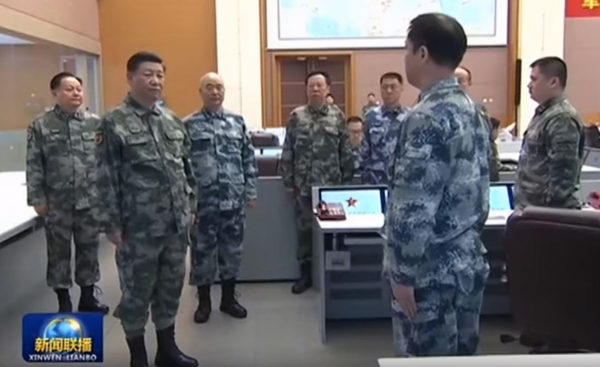◎ We anticipate that many officials, including those considered to be untouchable, are going to be purged over the course of Xi’s second term in office.
Since the 19th Party Congress, several leading Chinese Communist Party (CCP) officials, military generals, and state-level departments have issued articles or held meetings on “implementing the spirit” of the Congress where they expressed their loyalty and support of Xi Jinping:
- On Nov. 6, Central Military Commission (CMC) vice chairman Xu Qiliang said that it is necessary to “conscientiously” safeguard the “core” status of Chairman Xi during the CMC’s 19th Congress study session. CMC vice chair Zhang Youxia said that the study session is “fundamentally a political seminar.”
- On Nov. 7, state media reported that the CMC delegation responsible for holding 19th Congress study sessions would travel to the Western Theater Command and other key departments and units to hold seminars on “implementing the spirit of the 19th Congress.”
- On Nov. 13, Minister for Public Security Zhao Kezhi referred to Xi as the “people’s leader” in a nearly three-hour speech given during a 19th Congress study session.
- Also on Nov. 13, the People’s Daily carried an article by Central Committee member Liu Qibao which praised Xi’s 19th Congress report as being ahead of its time and the “overall situation.” The article also called for the “weaponizing of the brain” with “Xi Jinping Thought.”
- On Nov. 14, Supreme People’s Procuratorate (SPP) head Cao Jianming emphasized the need to safeguard the “Xi core” during a SPP study session. Meanwhile, the Jilin military district held a meeting to promote Xi’s views on a having a strong military and to safeguard the “Xi core,” views that were also brought up in CMC vice chair Xu Qiliang’s People’s Daily article that was published on the same day.
- On Nov. 15, the People’s Daily carried an article by Politburo member and anti-corruption agency deputy chief Yang Xiaodu which promoted Xi’s views on the need for “strictly and comprehensively governing the Party.”
During the same period, the anti-corruption agency probed three officials in the central government and 27 provincial-level officials.
Our take:
- Xi might be a “General Secretary Plus” after the 19th Congress with the addition of his political theory to the CCP constitution, but this isn’t immediately obvious with the retention of the Politburo Standing Committee and the collective leadership structure. Hence Xi has to continually emphasize his elevated status to the public through a concerted propaganda campaign.
- The propaganda campaign presents an opportune moment for Xi to gauge the loyalties of leading CCP cadres. Xi’s rivals will find it very risky to foster an anti-Xi coalition in a climate where it is unclear if praise of him reflects genuine support or mere flattery.
- Based on our observation of CCP methods, the CCP usually has issues with whatever it is vigorously promoting. In other words, Xi’s opponents still have considerable strength left, and Xi’s status as paramount (“core”) leader and his control over the military is still not secure.
- Given the current political situation, Xi will likely initiate an anti-corruption drive that is more intense than earlier efforts after he is done with broadcasting his new authority. We anticipate that many officials, including those considered to be untouchable, are going to be purged over the course of Xi’s second term in office.












